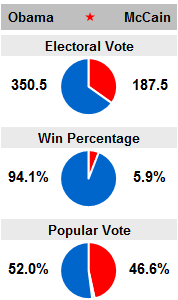Order of Magnitude Calculation
Dec. 9th, 2013 09:08 pmYou know who never has a shortage of work? Skylight repair man in Gotham City.
— Dan Moren (@dmoren) December 10, 2013I totally wanted to reply to this, but there isn't enough space in 140 characters.
There's this idea in physics of the order of magnitude (OOM) calculation, sometimes also called a back-of-the-envelope calculation. The idea is that you can calculate a rough number (OOM) for a very abstract concept with just making a few assumptions at the beginning and doing a very small bit of math. The classic story is that Feynman calculated the number of piano tuners in Chicago on the back of an envelope.
So let's say that a typical Batman cartoon episode takes place over a single day of real time. Let's further presume that in a typical episode, a villain breaks one window, and Batman breaks a second. If a repairman takes a half day to replace a window, then Gotham would need exactly one glass repairperson to account for the city's villains and heroes. Any additional window breakage would require either overtime on the first glass repairperson's part, or else additional glass repairpersons.
Originally posted on Dreamwidth.

